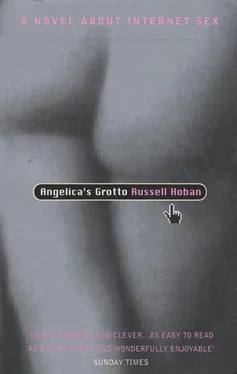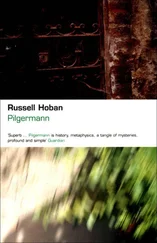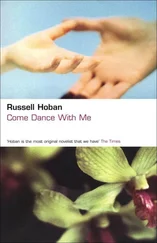You’re a pathetic fallacy, said Klein, and turned away. He went through his video collection, chose The Passenger, fast forwarded to the scene near the end when Jack Nicholson, having stolen another man’s name, his passport, and possibly his destiny, lies on a bed in the Hotel de La Gloria on the Spanish border. In the stillness of late afternoon the camera, like his departing spirit, moves slowly out through the window and the grille to look across a dusty space towards the Plaza de Toros where there is nothing happening today except a trumpeter sending a solitary paso doble into the ambient silence. Little distant figures by its wall speak in diminished voices. The faint passing wail of a far-off train is heard, then the labouring engine of the little Auto Escuela Andalucía car. Maria Schneider, the unnamed Girl, appears walking slowly towards the bullring. The car of the driving-school comes and goes; a small boy runs across the window’s view, throws a stone, is shouted at by the little distant figures. A white Citrën drives up; two men in light suits get out. There are church bells, car doors slamming, the roar of a motorcycle starting up and fading into quietness. People come and go in the dusty space, some of them look up at the window, some don’t. A siren announces the arrival of a black-and-white police car; the policemen order the driving-school car to leave. Somewhere a dog barks. Other uniformed men arrive in a patrol car, perhaps they are border guards. With them is the wife of the man on the bed. He is dead now.
‘Did you recognise him?’ the wife is asked.
‘I never knew him,’ she says. The man on the bed is left behind as his story moves on without him.
The last shot in the film is outside the hotel at that time of media luz, all delicate pink and violet, when the sky is still luminous but the lamps are lit, first outside the hotel, then inside. The little Auto Escuela Andalucía car drives off under the music of a thoughtful guitar playing something uncredited that Klein had heard elsewhere: Julian Bream? He put on La Guitarra Romantica, searched patiently until he found it on Track 15, ‘Canco del lladre’, ‘The Thief’s Song’.
‘“The Thief’s Song”,’ said Klein. ‘He stole the identity of another man. This one that I have now, where did it come from? And the learner in the driving-school car, did he or she ever pass the driving test?’ Then he realised that he was speaking aloud. He sighed and went upstairs.
Lying wakeful in the back bedroom he listened for sounds on the other side of the wall. There was some murmuring and he opened his door to hear better. The door of the front bedroom, he noticed, was now slightly ajar. There was laughter, more murmuring, then he heard Melissa say, ‘No, Leslie, no power games tonight!’ Leslie laughed, there were sounds of a scuffle, Melissa cried out twice, then there was only the creaking of the bed. Klein closed his door. Welcome to the ménage à trois, said Oannes.
What am I going to do? said Klein.
We’ll think of something.
Klein was accustomed to the looming of buildings and buses and he could handle it up to a point; he was troubled, however, by what seemed to him the unknown messages encoded in the 14 buses, the old Routemasters like the one that towered over him now as he headed for Safeway with a rucksack slung from one shoulder and a shopping list in his pocket. The 14s were definitely redder some days than others. ‘“The poor dead woman whom he loved,/ And murdered in her bed,”’ he muttered.
You didn’t murder Hannelore, said Oannes. She topped herself.
Blood and wine and buses are red, said Klein as the 14 puttered past him. Love me, whispered its diesel pheromones.
Everyone except one old lady on two sticks was walking faster than Klein. The morning was hot, the Fulham Road was full of traffic, the little green men on the crossing lights grudgingly allowed pedestrians a tenth of a second to get from one side to the other while the cars crouched, ready to spring. The sun was bearing down on the pollution to keep it within easy reach of anyone who happened to be breathing in; an examiner of early entrails would have found little to say for today. Another 14 bus appeared, possibly a male responding to the one ahead.
OK, said Oannes, let’s get into this 14 bus thing, shall we?
I don’t like the way they loom, said Klein.
Naturally — that’s your guilt looming. Everybody’s guilt looms or climbs on their shoulders or crawls up their asses or whatever. The looming is normal so don’t let it bother you.
There’s more to it and I don’t know what it is.
We’ll get to that. First let’s look at what we’ve got here.
A big red in-your-face 14 bus.
A doubledecker, right?
Right.
What’s the essence of a doubledecker bus?
They have an upstairs and a downstairs.
Like your mind.
OK.
So if you don’t like it downstairs, go up on top.
Congratulations — you’ve just cut the Freudian knot.
Sometimes it needs cutting. These Routemasters — they’re open in the back, right? Why are they open?
So you can jump on and off.
Nice one, Harold. You jumped on — now what?
You think I should jump off?
You tell me.
I’m of two minds on that.
So when the time comes you’ll get rid of one of them.
One of the minds?
Whatever.
You said you were going to tell me about the more.
The thing about more is that it comes after what comes before it. When it’s ready it’ll make itself known.
You’re such a comfort to me, Oannes.
After all, we’re in this together for the time being.
What do you mean, ‘for the time being’?
Well, nothing’s for ever, is it.
Right, then while we’re still together let’s get on with the shopping.
I thought Melissa was going to help with that.
She had to be at King’s all day today. And Leslie’s out doing his thing.
Oh yes, Leslie’s thing.
It looms.
Nothing’s for ever, Prof.
When Klein reached the zebra crossingjust afters the little roundabout at the North End Road he looked neither to the right nor left but stepped off the kerb ignoring the squeal of brakes and walked without hurrying to the other side.
You got the action, you got the motion, said Oannes.
There was a nondescript brown dog parked outside Safeway. I could do shopping, it said with its eyes.
‘Cleverness is not enough,’ said Klein as the doors opened automatically, ‘you need money.’ He read his list: 1 cabbage; 3 carrots; 1lb onions; mayo; yoghurt; bunch parsley; codfish cakes.
You’re not just a pretty face, said Oannes. You can shop too.
I’m a regular Renaissance man, said Klein. Despite the mental irritant of Leslie, he found that he was feeling good. Beautiful young women were sometimes to be seen in the shadowless fluorescent daylight, pacing indolently among the apples, pears, oranges, bananas, strawberries and pomegranates. These fruits had in the past lost their excitement when he got them home. The illuminated bottles of golden juice, heavy with sunlight from Jaffa and Florida and the gardens of the Hesperides, had become simply the ghosts of citrus past in his fridge; potatoes had been mute lumps of carbohydrate. Now, even with the front-bedroom situation, there were good things to look forward to; the potatoes were solid with the promise of earthly delights and the pomegranates would still be musky with the scent of passing Persephones.
Читать дальше












